Air Filtration
One of the most important steps you can take to keep the air clean is to change your furnace air filter regularly. For most 1" pleated filters, that means replacing the filter once per month to keep the air clean and the furnace operating efficiently. If there are pets or allergy sufferers in the home, consider a whole-house HEPA air filtration system to reduce pet dander and allergens.Maintain Proper Humidity Levels
During the summer, a central air conditioner will do a good job of removing moisture from the air. In extremely humid environments, excess mold can form, leading to health problems. If the humidity is over 50% you'll likely be feeling uncomfortable and may benefit from a whole-house dehumidifier.In the winter, humidity levels between 30-40% are ideal. If humidity levels are too low, you may experience dry, cracked skin and upper respiratory irritation. A whole-house humidifier is a better option than standalone units, which are less effective and can harbor mold and bacteria.
Exhaust Systems
Many of the most harmful contaminants in the home are unseen. Carbon monoxide and radon are colorless, odorless gases that can cause serious health problems or death. Gas furnaces, water heaters, dryers, and other appliances that produce carbon monoxide exhaust must be properly vented to the outside of the home.Have your home tested for Radon. If your home tests high for radon gas, special exhaust systems can be installed to improve ventilation to reduce exposure.
Have questions about indoor air quality? Give Maxwell Plumb a call, we're here to help.

